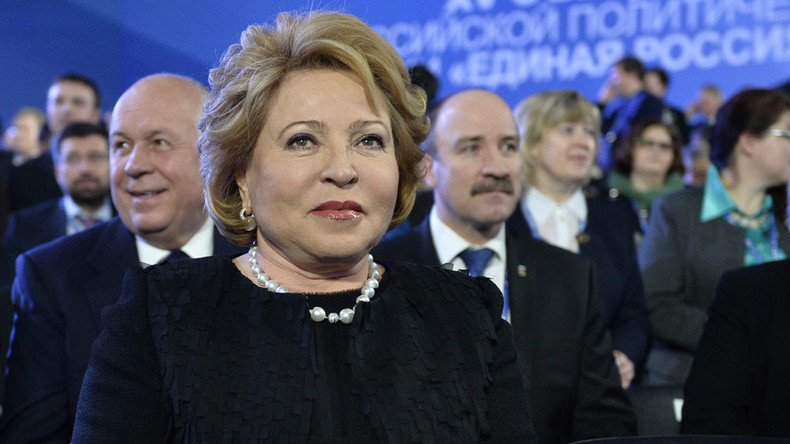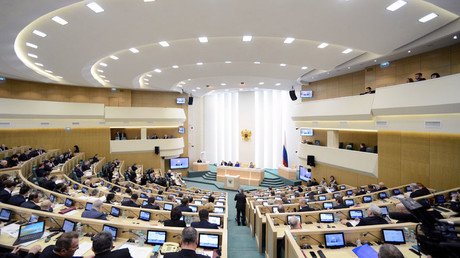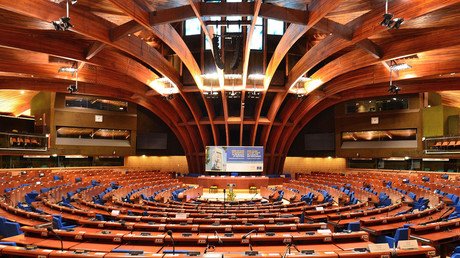Russia seals agreement to hold session of world’s oldest parliamentary union

The 135th assembly session of the Inter-Parliamentary Union (IPU) – a focal point for international dialogue between parliaments – has decided to hold its next meeting, due in 2017, in Russia’s St. Petersburg, Federation Council chair Valentina Matviyenko has told reporters.
Matviyenko, who personally led the delegation of Russian senators in the Geneva-based organization, added that the decision was passed almost unanimously. She used the opportunity to thank all her foreign colleagues for their support, saying that Russia has always attached great importance to the deepening of its ties with the Inter-Parliamentary Union.
“In essence, the IPU reflects the spirit of the world order that is based on the principles of equality, and nations’ respect to each other’s sovereignty and interests. This is the situation Russia is willing to achieve, just like many other states,” Matviyenko said at the session of the IPU’s ruling council.
The Russian upper house speaker also assured her foreign colleagues that her country was ready to accept delegations from all 170 member-states of the union. ”There will be no restrictions on our part,” she said.
Launched in 1889, the Inter-Parliamentary Union is the oldest such group in existence. It unites the members of 170 national parliaments, and 11 regional parliamentary assemblies are associate members. The group holds permanent observer status at the United Nations.
Earlier this month, the head of the Federation Council’s International Affairs Committee, Konstantin Kosachev, told reporters that Russian MPs had decided to approach the IPU, along with several other international inter-parliamentary associations, to compensate for continuing alienation from the Parliamentary Assembly of the Council of Europe (PACE). The main factor behind the choice of replacement was that the Inter-Parliamentary Union has never used sanctions as a means of pressuring minorities and political opponents, Kosachev noted.
Speaking to reporters after the plenary session that voted for holding another IPU meeting in Russia, Kosachev said that the move had met with strong opposition from the Ukrainian delegation, which first sent a letter asking to cancel it to all voting members, and which after the voting addressed the assembly’s leadership with a request to reconsider the decision.
However, the plea was also ignored, and the Ukrainian delegation subsequently voiced its intention to attend the St. Petersburg session.
Russia intensified cooperation with the IPU after it froze all activities with PACE, another international inter-parliamentary union. The suspension of ties came in 2014, after the assembly stripped the Russian delegation of its voting rights and banned it from participating in the group’s ruling bodies over the political crisis in Ukraine.
The Russian parliament responded by issuing a resolution stating that nations which have repeatedly violated international law and caused thousands of casualties have no moral right to judge Russia or impose sanctions on it. Russia’s delegation left PACE after the controversy, considering it impossible to resume discussions while the sanctions were in force.
In late September this year, the head of the State Duma Committee for International Affairs, Leonid Slutsky, allowed for Russia’s gradual return to PACE once the body stops its policy of “discrimination” against Moscow. He added that the Russian parliament maintained contact with all political groups of PACE and that its representatives would continue to monitor the developments in it.














